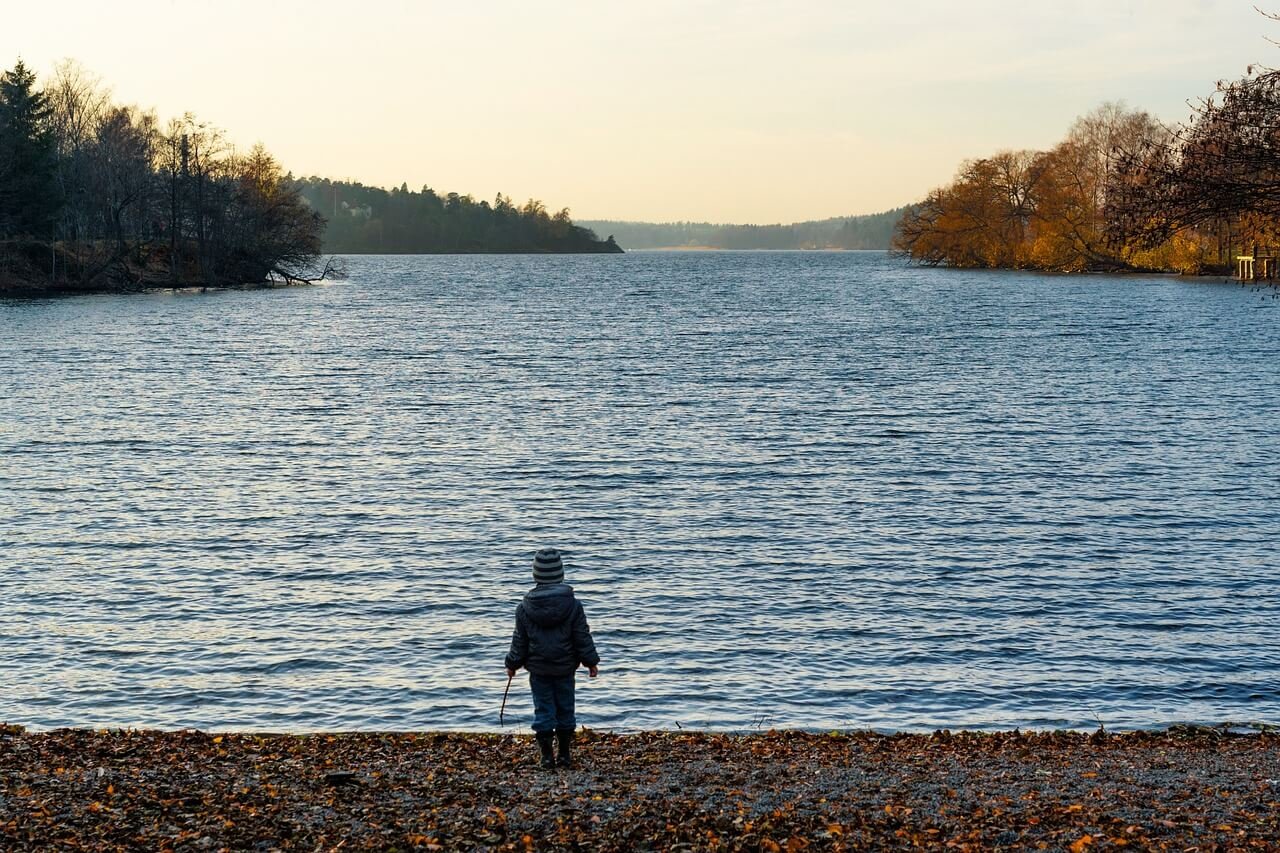Few things have shaped me to the degree becoming a father has. When my first son was born, the kind of love I fell into was different than any feeling I previously experienced. The amount of energy required, moment to moment, to look after him, keep him safe, make sure he was still breathing, and calm him when he cried was a whirlwind – it changed my life. With a life change that enormous came a new unforeseen obstacle, how can I help my child understand Life? What can I teach him about God, about the Universe, that I know to be true in my heart? Am I capable of teaching the right things to him? The flooding questions were terrifying. They terrified me because deep down, with all the hope and effort I exercised in my life to find out who God is, I never found a satisfying answer. Something in me knew my beliefs were shallow, fraudulent, chaff in the wind. That feeling of phoniness accompanied me for a long time, and after becoming a dad, I felt a determination to understand that feeling, and to transform it, so my children would never need to bear its weight.
I was a zealous believer as a high school student. I was organizing bible studies outside of church with groups of friends (albeit most of them belonged to the Church of Christ, such as myself), and eventually we invited our classmates from other church backgrounds (mostly non-denominational and Baptist churches, still within the Protestant tradition) to worship, discuss, debate, and understand God together. We challenged one another, argued about holy scripture, asked hard questions, and increasingly our faith grew. It was initially arduous learning that people held different beliefs about God than I did. Then it became captivating. There was something strange and disarming when I realized the people with different beliefs were my friends. They weren’t strangers across town, outsiders across the world, trolls on the internet, or unknown countrymen. They were my community. The process of understanding others through a lens of curiosity became a great building block of my identity as a person, a man, a pre-father.
This energy molded into a passion and continued to fuel me as I left home for college. I entered that unfamiliar campus eager to meet others who shared my enthusiasm for religion. I enrolled in bible courses that challenged me, I connected with various faculty and professors, meeting in their offices to ask follow up questions after lecture. I was becoming a real nerd. I studied abroad one semester, traveled Europe, found a life-giving relationship with our traveling faculty, and experienced so much newness. It really felt magical those first few years of school. I was emerging into a version of myself that felt whole. But, a few disheartening experiences after returning back to the states changed my trajectory, scattering my well-defined understanding of who I was and what I believed.
My emphatic, curious, personal exploration of God started to dwindle. I’m not sure if it was culture shock (how much culture shock can come from going to England?) or a veil of ignorance that lifted off me, but I started sensing my student counterparts didn’t truly care about challenging their worldview, they seemed perfectly happy to learn about business or something else. I grew reluctant to further search for a deeper spiritual knowledge with my community. I became cynical. I was feeling uncomfortable being myself around my friends, so I pulled back and changed course and instead, focused my time on other things, like, partying, joining a social club, studying for nursing school, and trying to be in romantic relationships. In hindsight, that marked the beginning of my spiritual apathy, my downhill slide of unconcern, which continued for a stretch of years leading up to parenthood.
Without going too deep into that time period for the sake of this short write, I will say it was full of wandering and exhaustion. So many ideas, so many thoughts, all immediately available in the palm of my hand to usher me down a rabbit hole. My inner pain began to define my experience of my world, the pain originating as a result of pursuing personal identity, the loneliness birthed from a notion that who I was, what I cared for, the way I saw the world, was not acceptable. To be fair, I stopped giving anyone the opportunity to prove me wrong. After being hurt by loved ones close to me, I closed off and censored who I was to keep the peace. Only recently have I begun to understand the extent and damage of my entrenched safety mechanism, and how that caused great trouble in my relationships to others and myself. A difficulty when navigating self-deception is the feeling of worthlessness, a feeling that I had nothing to offer my children to help them understand their world. The feeling that I could not help them or be a good father.
To grasp my broken perception of who I would be as a father brought me on a long path back to my own pain, back to myself. My inner, previously unknown wound was an obstacle to becoming myself. With a little time and attention focused on observing that hurt, I gradually gained insight into a clearer view of myself, and perhaps a clearer view of who we are as a people. The initial fear of being an incompetent father started to subside, and a hope to give my children true guidance in this world became more possible. Nothing was achieved without effort and a lens of curiosity. Knowledge was not given by running from the pain. The love for my son pushed me to face my own struggles and be a little more courageous than I was before. In closing, Carl Jung popularly said it best, “Nothing has a stronger influence psychologically on their environment, and especially on their children, than the unlived life of the parent.”




Leave a Reply